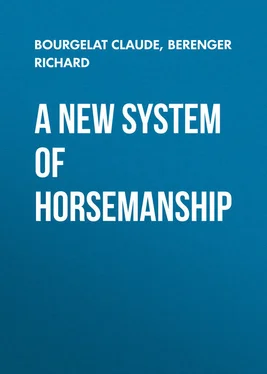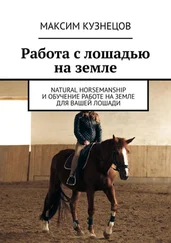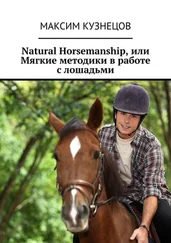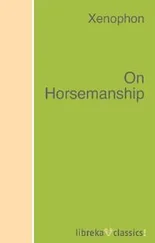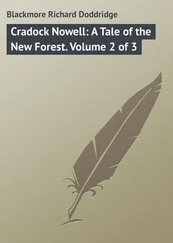Richard Berenger - A New System of Horsemanship
Здесь есть возможность читать онлайн «Richard Berenger - A New System of Horsemanship» — ознакомительный отрывок электронной книги совершенно бесплатно, а после прочтения отрывка купить полную версию. В некоторых случаях можно слушать аудио, скачать через торрент в формате fb2 и присутствует краткое содержание. Жанр: foreign_antique, foreign_prose, на английском языке. Описание произведения, (предисловие) а так же отзывы посетителей доступны на портале библиотеки ЛибКат.
- Название:A New System of Horsemanship
- Автор:
- Жанр:
- Год:неизвестен
- ISBN:нет данных
- Рейтинг книги:4 / 5. Голосов: 1
-
Избранное:Добавить в избранное
- Отзывы:
-
Ваша оценка:
- 80
- 1
- 2
- 3
- 4
- 5
A New System of Horsemanship: краткое содержание, описание и аннотация
Предлагаем к чтению аннотацию, описание, краткое содержание или предисловие (зависит от того, что написал сам автор книги «A New System of Horsemanship»). Если вы не нашли необходимую информацию о книге — напишите в комментариях, мы постараемся отыскать её.
A New System of Horsemanship — читать онлайн ознакомительный отрывок
Ниже представлен текст книги, разбитый по страницам. Система сохранения места последней прочитанной страницы, позволяет с удобством читать онлайн бесплатно книгу «A New System of Horsemanship», без необходимости каждый раз заново искать на чём Вы остановились. Поставьте закладку, и сможете в любой момент перейти на страницу, на которой закончили чтение.
Интервал:
Закладка:
The Apuy being always in the same Degree, would heat the Mouth, would dull the Sense of Feeling, would deaden the Horse's Bars, and render them insensible and callous; this shews the Necessity of continually yielding and drawing back the Hand to keep the Horse's Mouth fresh and awake.
Besides these Rules and Principles, there are others not less just and certain, but whose Niceness and Refinement it is not the Lot of every Man to be able to taste and understand. My Hand being in the first Position, I open the two Middle-fingers, I consequently ease and slacken my Right Rein; I shut my Hand, the Right Rein operates again, and resumes the Apuy. I open my Little-finger, and putting the End of it upon the Right Rein, I thereby slacken the Left, and shorten the Right. I shut my Hand entirely, and open it immediately again; I thereby lessen the Degree of Tension and Force of the two Reins at the same time; again I close my Hand not quite so much, but still I close it. It is by these Methods, and by the Vibration of the Reins, that I unite the Feeling in my Hand with that in the Horse's Mouth; and it is thus that I play with a fine and made Mouth, and freshen and relieve the Bars in which the Feeling or Apuy resides.
It is the same with respect to the second Descent of the Hand: My Right-hand holding the Reins, I pass and slide my Left-hand upon the Reins up and down, and in the Degree of Apuy of the easy and slack Hand; by the means of which the Horse endeavours of himself to preserve the Correspondence and Harmony of that mutual Sensation, between his Mouth and the Rider's Hand, which alone can make him submit with Pleasure to the Constraint of the Bit.
I have thus explained the different Positions and Motions of the Hand; let me shew now in a few Words the Effects which they produce.
The Horseman's Hand directs the Reins; the Reins operate upon the Branches of the Bit; the Branches upon the Mouth-piece and the Curb; the Mouth-piece operates upon the Bars, and the Curb upon the Beard of the Horse.
The Right Rein guides the Horse to the Left; the Left Rein to the Right. Would you go to the Right, you pass to the fourth Position of the Hand, that is, you carry and turn your Nails to the Right; now in carrying thus your Nails to the Right, and reversing your Hand in such a manner, that your Thumb point to the Left, and your Little-finger being raised turns to the Right, you by this means shorten your Left Rein; it is this Left therefore that turns and guides the Horse to the Right: Would you go to the Left, pass to the fifth Position, you will carry the Back of your Hand to the Left, so that your Nails will be turned down a little, your Thumb will be to the Right, and the Little-finger to the Left; this will shorten the right Rein, and the right Rein determines your Horse to the Left.
I have already said, that the Effect which the Mouth-piece has upon the Bars, and the Curb upon the Beard, depends upon the Branches of the Bitt; when the Branches rise or are turned upwards, the Mouth-piece sinks, and when the Branches sink, the Mouth-piece rises; so that when your Horse is going strait forward, if you keep your Hand low and close to your Body, the Mouth-piece then presses strong upon the Bars, and the Chain or Curb having, in consequence more Liberty, acts less upon the Beard; on the contrary, if you keep your Hand high, a little forward, and consequently a little out of the Line of the End of the Branches, the Mouth-piece then sinks, and the Branches of necessity operate upon the Curb, which presses then very strongly upon the Beard; now, in order to place, and to bring in your Horse's Head, you must hold your Hand low, and in order to raise and lighten a Horse that weighs upon the Hand, and carries his Head too low, you must advance your Hand a little, and keep it high.
Would you have your Horse go backward? Come to the third Position, but take care to round your Wrist exactly, in order to work equally with both Reins, and by this means to aid your Horse more effectually to go backward strait and ballanced between your Legs, which he could never do, if one Rein was to operate stronger than the other.
There are particular Cases, where the Reins are separated, and one held in each Hand; it is usual to separate them when you trot a young Horse, or when you are to work one who is disobedient, and resists his Rider; upon these occasions, keep both your Hands upon a Level, low and near your Body: To turn to the right, use your right Rein; to go to the left, use your left Rein; but in order to make them have their Effect, move your Arm gently, turning it a little from your Body, keeping your Hand always low and even near your Boot.
Such are the Principles upon which the Perfection and Justness of the Aids of the Hand depend, all others are false, and not to be regarded; Experience has so much the more evinced the Truth of this, as the new Discoveries which some People imagine they have lately made, have produced nothing but Hands, cold and unactive, without Firmness, whose irregular and capricious Motions serve only to render a Horse's Mouth uncertain and fickle, and who, by their manner of holding them high, have ruined absolutely the Hocks of all the Horses, that they have worked according to these absurd Notions.
CHAP. III.
Of Disobedience in Horses, and the Means to correct it
Disobedience in Horses is more frequently owing to the want of Skill in the Horseman, than proceeding from any natural Imperfections in the Horse; in effect, three things may give rise to it, Ignorance, a bad Temper, and an Incapacity in the Animal to do what is required of him.
If a Horse is ignorant of what you expect him to do, and you press him, he will rebel, nothing is more common; teach him then, and he will know; a frequent Repetition of the Lessons will convert this Knowledge into a Habit, and you will reduce him to the most exact Obedience.
He refuses perhaps to obey, this Fault may arise either from Ill-humour, Dullness, or from too much Mettle; it often is the Effect of the two first Vices, sometimes the Result of all the three. In either, or all these Instances, recourse must be had to Rigour, but it must be used with Caution; for we must not forget, that the Hopes of Recompence have as great an Influence over the Understanding of the Animal, as the Fear of Punishment. Perhaps he is not able to execute what you ask of him; examine him, something may be amiss in some Part of his Body, or perhaps in the whole Body; he may be deficient, he may want Strength, or not be light enough; perhaps he is deficient in both, in that he resists and rebels. Consider whether he knows what he should do or not; if he is ignorant, teach him; if he knows, but can't execute through Inability, endeavour to assist Nature as far as you can, by the Help of Art. But does he already know, and is he able too, and yet does he refuse to obey? After having first tried every Method that Patience and Lenity can suggest, compel him by Force and Severity. It behoves then every Horseman, who would be perfect in his Art, to distinguish from whence the different Sorts of Defences and Rebellion in Horses proceed: And this Knowledge is by so much the more difficult to attain, as he must have Penetration enough to distinguish if the Cause of their Rebellion is in their Character and Nature, or owing to any Fault in their Make and Structure.
The different Natures of Horses are infinite, though there are certain general Principles, of which all, more or less, always partake.
A Horse may be imperfect from four Causes, Weakness, Heaviness in his Make, Want of Courage, and Sloth.
Four Qualities must conspire to make a perfect Horse, Strength, Activity, Courage, and Judgment.
The Mixture of these different Qualities occasions the different Natures and Dispositions of the Creature, according as he is form'd better or worse; for it is from his Temper, or rather from the Harmony or Unfitness of the Parts and Elements, of which he is composed, that we are enabled to fix his Character; it is therefore the Part of every Horseman never to work but with Discretion and Caution, and to adapt his Rules and Lessons to the Nature and Ability of the Horse he undertakes, and which he ought to know.
Читать дальшеИнтервал:
Закладка:
Похожие книги на «A New System of Horsemanship»
Представляем Вашему вниманию похожие книги на «A New System of Horsemanship» списком для выбора. Мы отобрали схожую по названию и смыслу литературу в надежде предоставить читателям больше вариантов отыскать новые, интересные, ещё непрочитанные произведения.
Обсуждение, отзывы о книге «A New System of Horsemanship» и просто собственные мнения читателей. Оставьте ваши комментарии, напишите, что Вы думаете о произведении, его смысле или главных героях. Укажите что конкретно понравилось, а что нет, и почему Вы так считаете.
